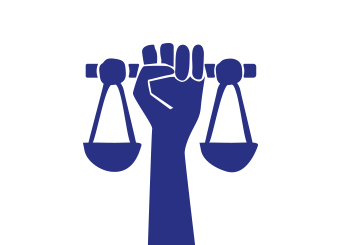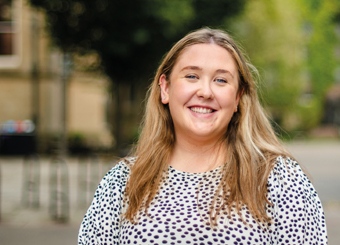Dr Leo Geyer has been on a remarkable journey – taking him from music undergraduate at The University of Manchester to the driving force behind The Lost Music of Auschwitz, a Sky Arts documentary and ten-year project to uncover, reconstruct and perform music written and played more than 80 years ago by prisoners of the Nazi concentration camps.
A musical turning point in Manchester
Geyer began his studies at the University with a singular focus: composition. “I hadn’t planned on being a conductor,” he says. “It was only after I got involved in an audition for the conducting programme at Manchester that I found myself thrown into it.”
This accidental detour turned out to be pivotal. The programme inspired Geyer to conduct Manchester University Music Society ensembles, including the symphony orchestra, and to found his own company, Constella Music.
“The support I received at Manchester laid the groundwork,” he reflects. “Not just in terms of skills, but the belief that a young person could shape something meaningful.”
Upon graduating, Geyer took on a role as Cover Conductor for The Royal Ballet and Opera, marking an impressive start to his professional career. “It gave me real-world experience,” he says. “Manchester gave me opportunities but also a place within an artistic and collaborative community.”
I arrived determined to be a composer – nothing more. But an unexpected audition changed everything.
Piecing together lost history
The seeds for The Lost Music of Auschwitz were planted during a research trip to Poland and the concentration camp. An archivist mentioned off-hand to Geyer, “there’s musical manuscripts in the archives, but you won’t be interested in them”. They couldn’t have been more wrong.
The manuscripts were in terrible condition and, in some cases, the music existed only in memory. What followed was a decade-long mission: gathering fragments, interviewing survivors and reconstructing incomplete compositions.
“I recreated one of the arrangements from testimonial evidence alone,” Geyer recalls. “The survivors remembered astonishing musical detail, and that gave me the tools to bring it back.”
One piece – unfinished and unsigned – posed a particularly painful challenge. “I noticed that the handwriting was identical to mine, which sent goosebumps down my spine.” It was this manuscript that helped Geyer grapple with his own worries of authenticity, noting that he’s not Jewish, Polish, Romani or descended from any other people who perished within Auschwitz.
“It made me realise that the Holocaust is not exclusive to one group. It’s all our duties to engage with this history, to educate and to learn from it.”
His meticulous work culminated in The Lost Music of Auschwitz, a Sky Arts documentary that aired on Holocaust Memorial Day in January 2025. The response was immediate and deeply emotional. “The documentary was covered in every national paper and the feedback has been overwhelming,” Geyer says. “Even now, people still message me – some in tears.”
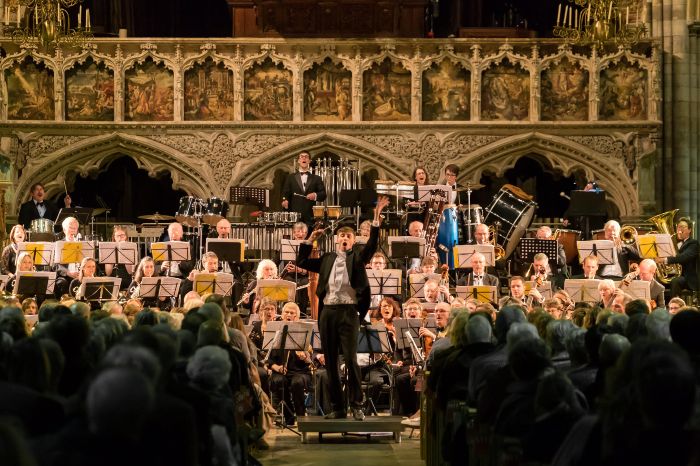
Dr Leo Geyer and orchestra performing the music in concert
Restoring sound to silence
Performing the recovered music required more than technical precision; it demanded emotional sensitivity. Geyer and the orchestra made a conscious choice to conduct and play from memory, freeing themselves to connect more deeply with the moment.
“It was about more than performance,” he says. “It became about embodiment, memory and respect. Conducting from memory elevated the emotional potential.”
Engaging with the past through music
Recent global events have seen some circles attempt to politicise the Holocaust. Geyer explains: “Commemorating the Holocaust is not a political act – it is about remembering the millions that were murdered.”
Accessibility has become one of his driving values. “In Jewish communities, Holocaust remembrance is built in. But outside of that, many people feel removed from it,” he says. “I wanted to change that.”
“It’s been fantastic that the public have really understood what this project is about, which is to inspire and engage people to commemorate and learn from the Holocaust, particularly as we have so few survivors left. We have got to find new ways of engaging with the public, which don’t rely on living memory.”
This isn’t about one group remembering – it’s about everyone.
From stage to opera-ballet
In June 2025, Geyer premiered his opera-ballet, The Lost Music of Auschwitz – performed by Constella Music and choreographed by Claudia Schreier. The 80-minute work is described as “impressionistic rather than literal”, deliberately avoiding the iconography of Holocaust storytelling – no SS uniforms or barbed wire.
Instead, the production uses abstract masks, expressive dance and haunting music to offer the audience emotional access without sensationalism.
“It’s symbolic,” Geyer says. “We’re not re-enacting. We’re inviting people to feel, to reflect and to remember.”
The cast itself embodies the production’s ethos. “Some performers come from families of survivors. Others have no connection to the events at all,” Geyer explains. “That’s the point. This isn’t about one group remembering – it’s about everyone.”
A shared responsibility
The toll this project has taken on Geyer isn’t something he hides. “You’d think after ten years you’d become immune,” he says. “But actually, it gets harder. When I go back to the archives in Auschwitz the weight of it all hits you.”
And yet he remains deeply committed. “I’ve taken great pains to make sure the Holocaust community supports the work,” he says. “That’s why it’s taken a decade. You have to move slowly and respectfully.”
There are discussions around a commercial release of the reconstructed works and plans for an international tour. “People keep asking for it, especially in the States,” he notes. “We’ve done all this restoration – now it needs to be heard.”
Carrying the voices forward
Leo Geyer’s story is about much more than academic pursuit or artistic success. It’s about responsibility and the power of art to hold space for memory.
“The Holocaust silenced millions,” he says. “But these works – and these voices – don’t have to stay silent. We can still listen. And in listening, we remember.”
Find out more about The Lost Music of Auschwitz opera-ballet.

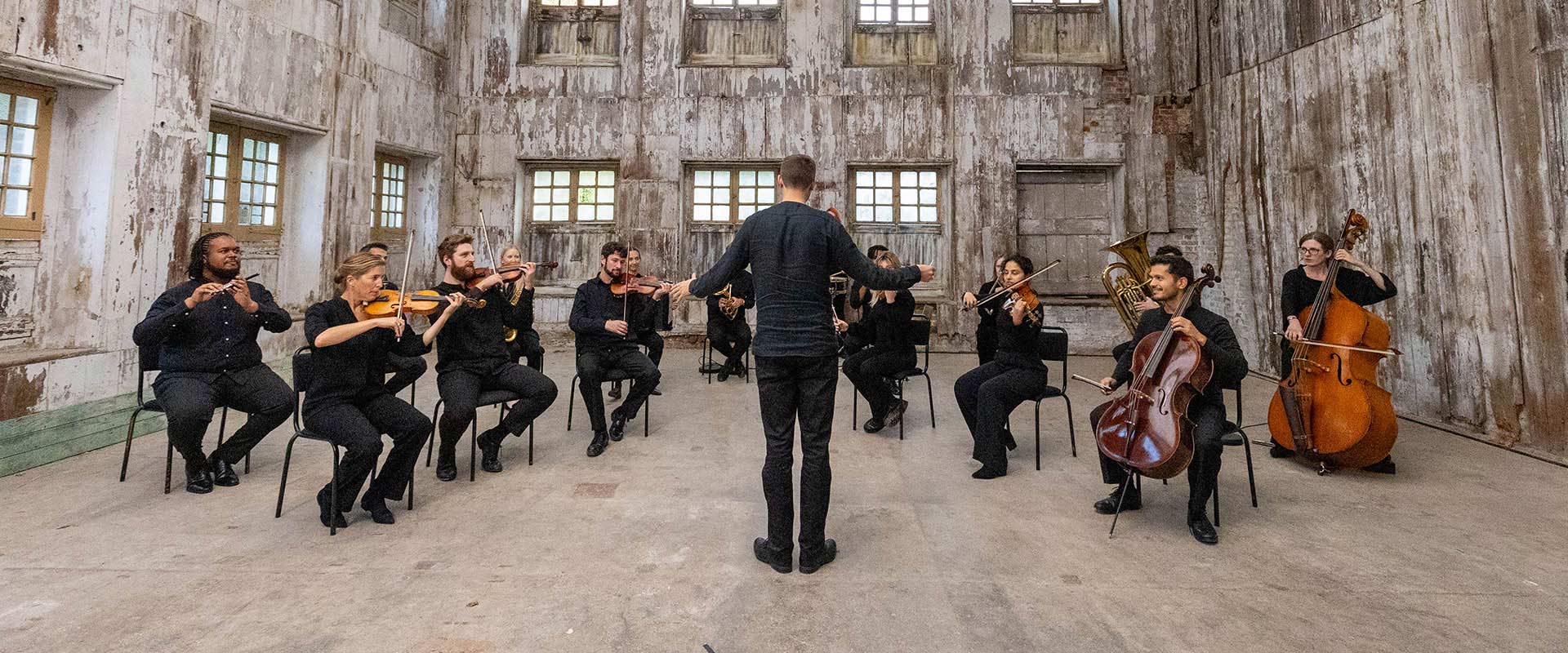
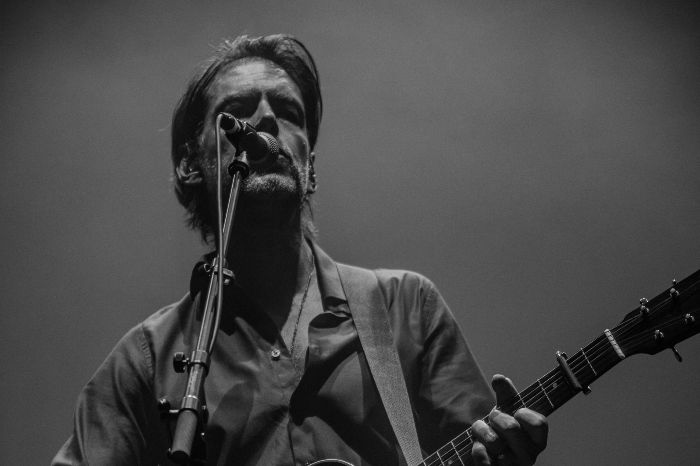
.jpg)
